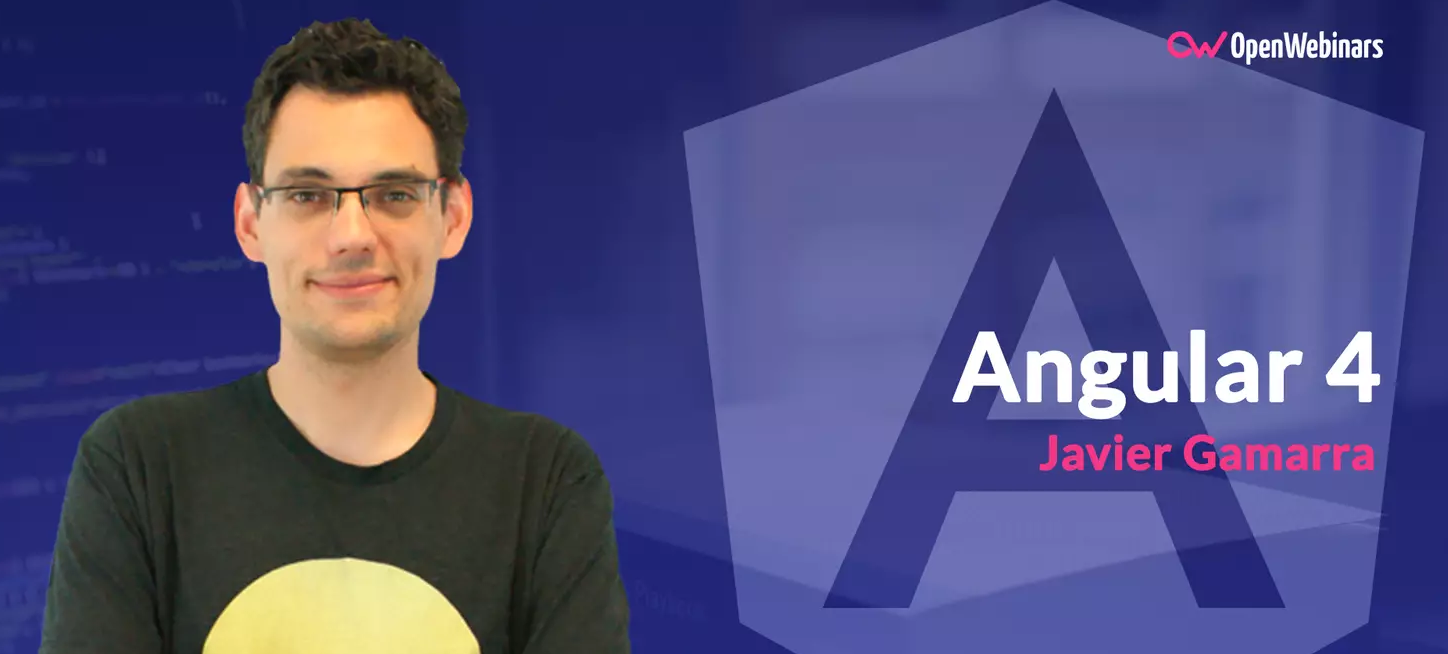Angular Courses and feedback
[UPDATE]
I’ve added several reader suggestions :)
Sorry for the picture, I do know it’s horrible and I contribute to its ugliness.
I really like angular. I know it’s over-architected, very complex and can be replaced with React and a few libraries. But I also think that frameworks are not bad per se, we lose flexibility but they guide us in how to develop a feature.
That’s why I think angular makes sense depending on the type of project, the team developing it and the company.
I’ve been tinkering with angular since the beta3? and I’ve given several talks and courses. Exactly 5 (!) courses about angular, being even more specific these ones:
- In February 2016 I gave a course (12 hours) to Brooktec about, what was called back then, angular2.
- In February 2017 gave an angular workshop, 4 afternoons (4*4 hours), in the URJC with MadridJS.
- In May 2017, I gave two, 8 hours sessions, to KairosDS.
- Also in May, I recorded the OpenWebinars courses responsible for that picture. 10 hours of video, slides, theory, repository…
- And last but not least, I’ve given an angular course to Luce in 5 afternoons (5*3 hours).
Feedback
And the feedback has been… good and lacking. In brooktec no-one responded the feedback form, 3 persons in luce (5% with all the sessions), 8 in kairos (32%), 15 in the URJC (5%) and currently 9 in openwebinars (5%).
I would love to have more answers :(
The general feedback is quite good (4.4/5 is the lowest mean of the courses and 4.67/5 the highest) but there are some 3’s that hurt, especially in OpenWebinars where I don’t know the reasons :(
These are the main things I have to improve:
- More advanced content
- More time for exercises
If you think those 2 objectives are the opposite of each other, I also agree. I’m continuously juggling between the decision of showing more content or reviewing the exercises. I don’t have an answer.
I have tried to close that gap offering hangouts or personal sessions to solve doubts or show advanced content whenever the attendees can. But it has been a profound failure.
I’ve proposed many dates for a hangout (no-one came), send doodles… I once sent a doodle to 2x developers, no-one answered, I told them so and gave another opportunity and, again, no-one answered :’(
I have a small theory: it’s different (mentally) to plan to attend to a workshop that to a hangout (where you can be the only one there). I don’t think the dates/times are the problem because I’ve offered a lot of, different, options. It has to be something in the brain, that reserves time to attend a course but doesn’t want to pursue the topic further.
As I told you, I’m out of possible solutions… any ideas?
More problems
The feedback forms also commented several problems with the courses, these ones:
- More interactive content
- Show a real application
- Spend more time explaining why x feature is useful
- Less content about observables (specific to angular)
Both four are true but the first 2 ones are more important (IMHO). I have to prepare more interactive courses. I have several ideas but I don’t execute them. I’ve tried leaving exercises, optional exercises and encouraging personal projects. Do you have any suggestions? (I’m nhpatt in twitter and gmail!)
I can fix all of those without angering any other attendee so I’ll try to do it for next courses!
I want to update the Toledo App and public a big open source project… so that will cover the show a real application feedback.
I also plan to fill a feedback form live in the next course, to show that I can accept real criticism and that it takes just 2 minutes.
As always, I’m still open to having a hangout with whoever wants to learn more about angular…
Final words
I’ve written some previous posts about feedback… and I’ve tried several of the objectives I mentioned. But I haven’t forced the people to do a personal project nor answer the feedback form.
I’m trying to manage expectations (and I think I have improved in that regard) but I’m lacking the confidence to do questions or force the attendees to do something.
This is now my go-to post for preparing a course, along with this one. This is the TL;DR conclusions:
- Force them to create a real project
- Manage expectations
- Do dailies instead of summaries
- Look for more interactive content
- Review exercises
- Short feedback cycles
- Fill a feedback form with them
- Prepare basic content in an introductory session/hangout (along with setting up a minimum and enforcing it)
- Taunt the audience with questions
- Set an objective for the session
- Commit per exercise, references at the beginning…
- Insist on please, ask questions!
Reader suggestions:
- Differentiate levels and target the needs of each level
- Propose a real, already solved, problem (like twitter, hacker news…) but leave open a part to personalize and make their own.
- Use storytelling to narrate the problem to solve, to explain that is a real problem
I’ll keep you updated with my particular transparency.


